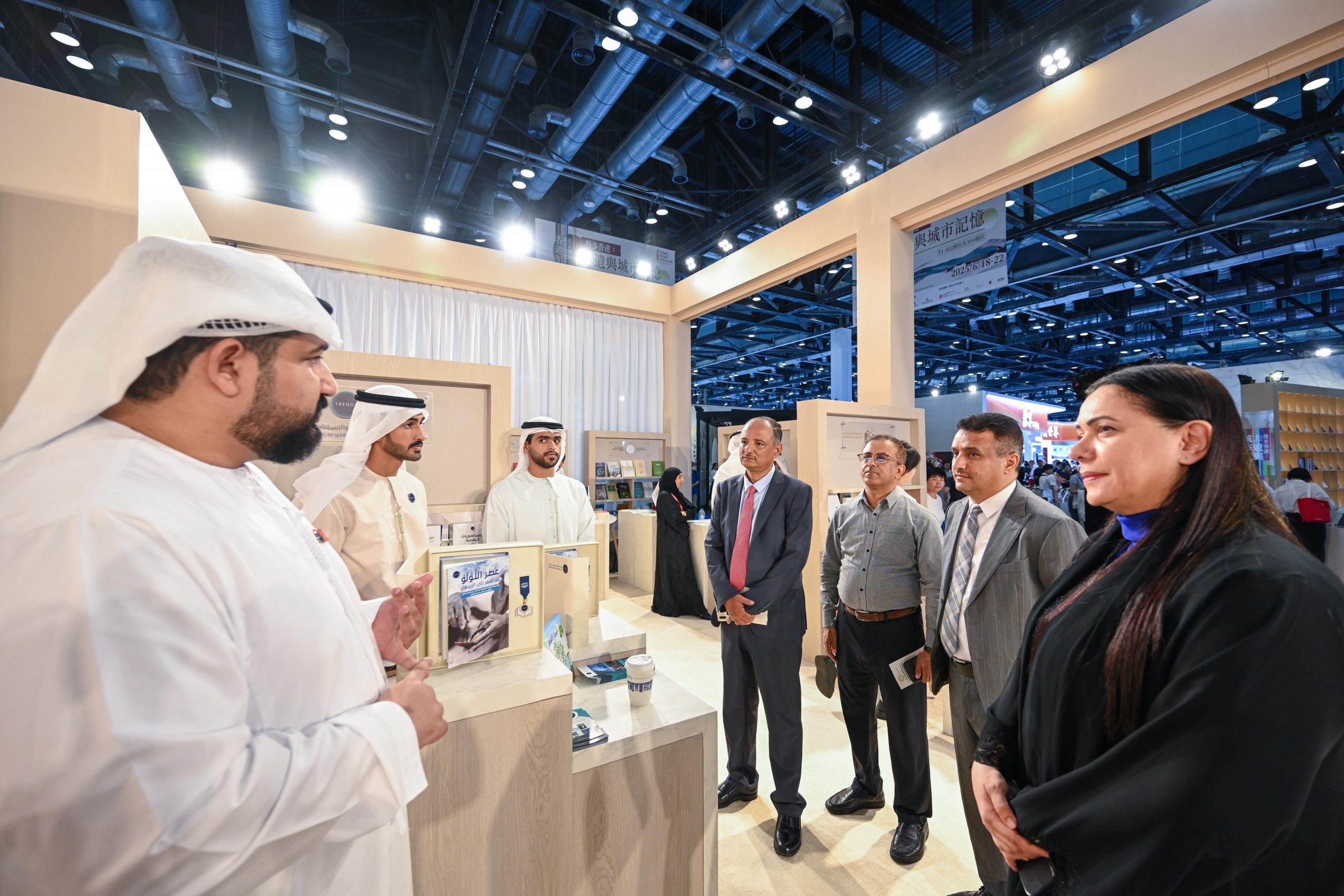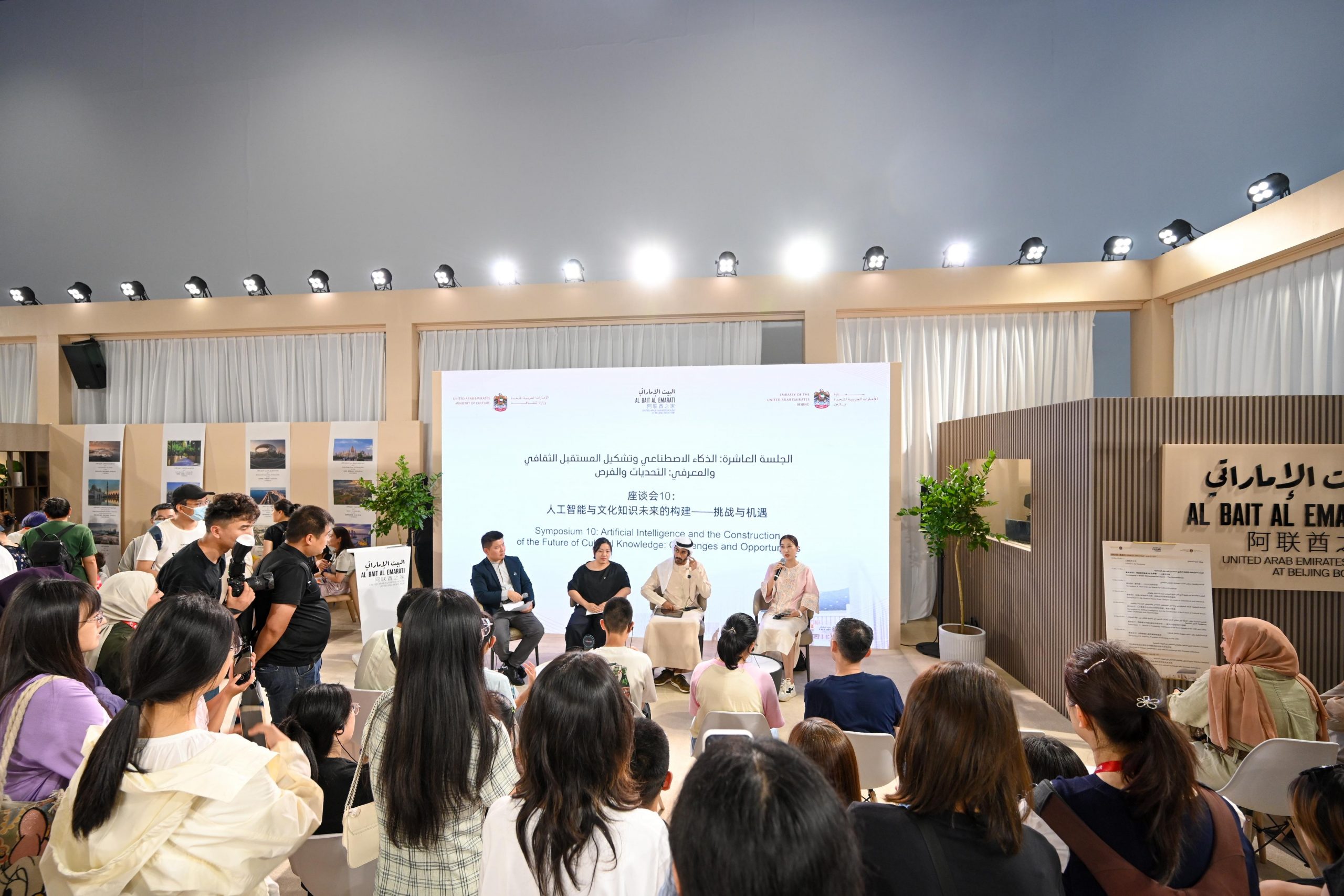Through its virtual office in China, TRENDS Research & Advisory held a seminar – Artificial Intelligence and Shaping the Cultural and Cognitive Future: Challenges and Opportunities – at its pavilion (No. E1.A01) in the China National Convention Center. The symposium concluded TRENDS’ participation in the 31st edition of the Beijing International Book Fair 2025.

The discussions at the seminar, moderated by Bing Zhu Yun (Taha), Director of TRENDS’ office in China and Director of China Today Magazine in the Middle East, focused on how artificial intelligence (AI) affects the production of books and cultural content, as well as its growing role in machine translation and language instruction. The discussions also addressed the role of AI in preserving and documenting cultural heritage, along with the ethical and technical challenges associated with its use in cultural, cognitive, and scientific domains.
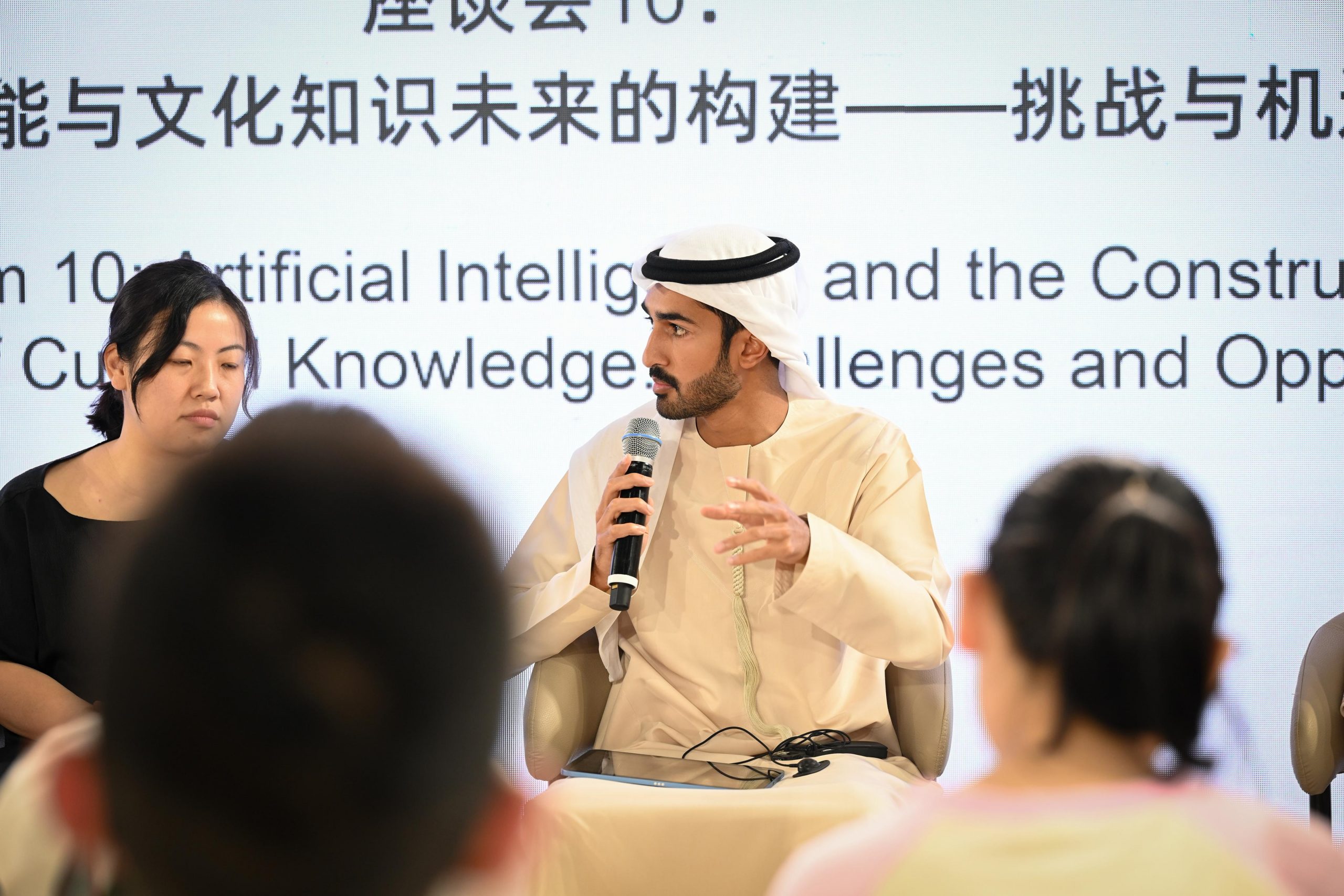
Support Cultural Creativity
The interventions began with Razan Chen Jing, a professor at the Middle East College of Beijing Language and Culture University, who emphasized that artificial intelligence’s impact on cultural creativity is evident in empowerment and re-creation. She noted that artificial intelligence has evolved from merely an auxiliary tool to a supportive partner in cultural production. Moreover, it now plays a significant role in facilitating communication and fostering cultural and mutual understanding.
Regarding the impact of artificial intelligence on translation techniques and cultural exchange, she stated that the greatest value of using artificial intelligence in translation is not speed, but rather cultural exchange, specifically, breaking language barriers and increasing communication opportunities. This, in turn, allows cultural entities without the opportunity for direct dialogue to interact.
Razan Chen Jing pointed out many ethical and technical challenges related to artificial intelligence in the cultural and scientific fields, especially regarding content generation, quotation practices, and violations of intellectual property rights. She argued that we should not only use artificial intelligence but also guide students and users to understand the cultural responsibility behind the use of technology.
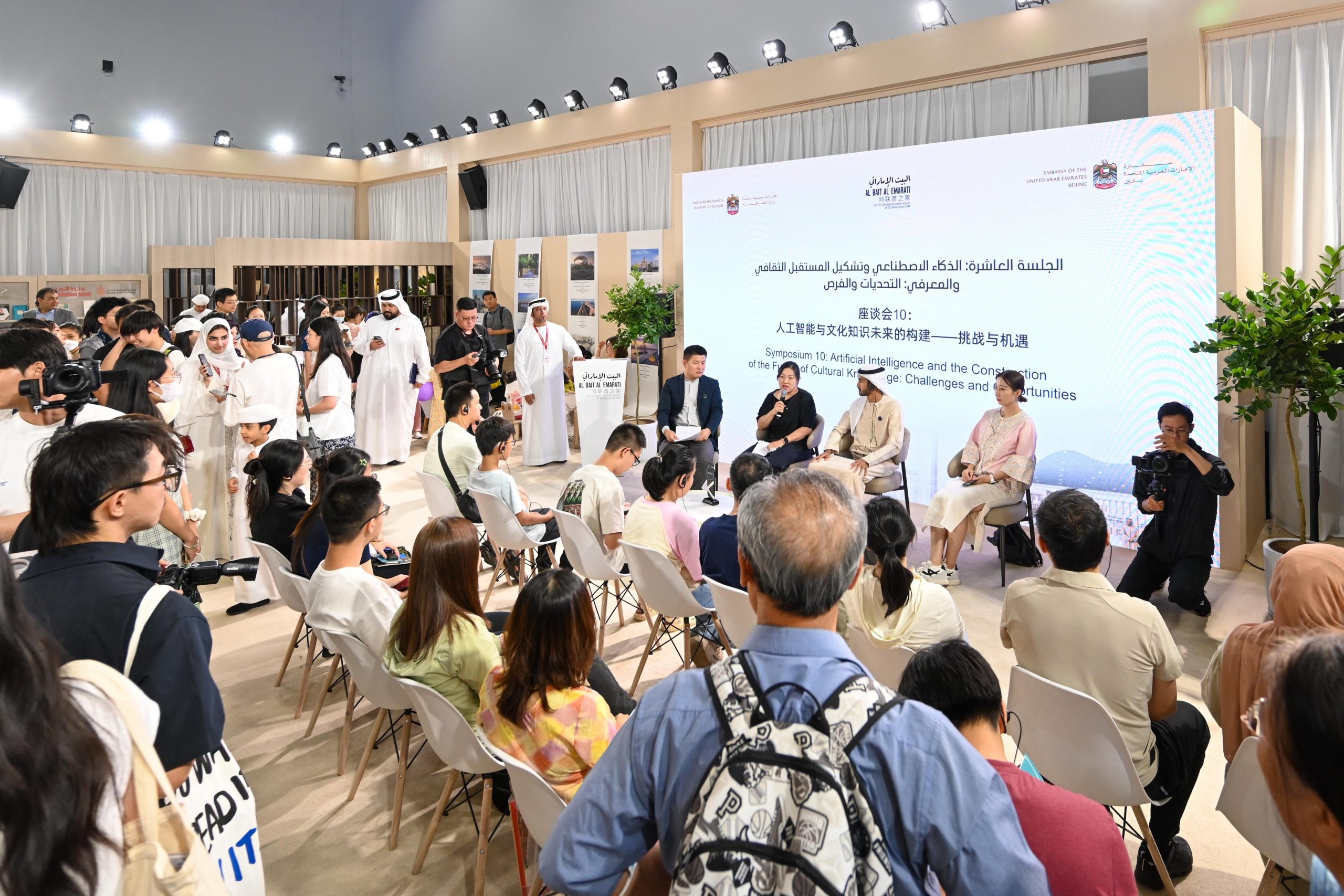
Data Bias
Zayed Al Dhaheri, a TRENDS Research & Advisory researcher, explained that artificial intelligence techniques pose challenges that cannot be ignored, including bias in the data. AI does not think independently; instead, it learns from the data it receives. If this data is not diverse or is overly concentrated in one language and culture, the results may be inaccurate or unfair.
He added that most AI tools rely primarily on English content and neglect other languages, including Arabic. This leads to a weak representation of Arab culture in the digital space and sometimes even distorts its image or presents it in a simplified, superficial manner. This highlights a broader challenge artificial intelligence faces: content ownership. Who owns the resulting work when producing a text, image, or video clip?
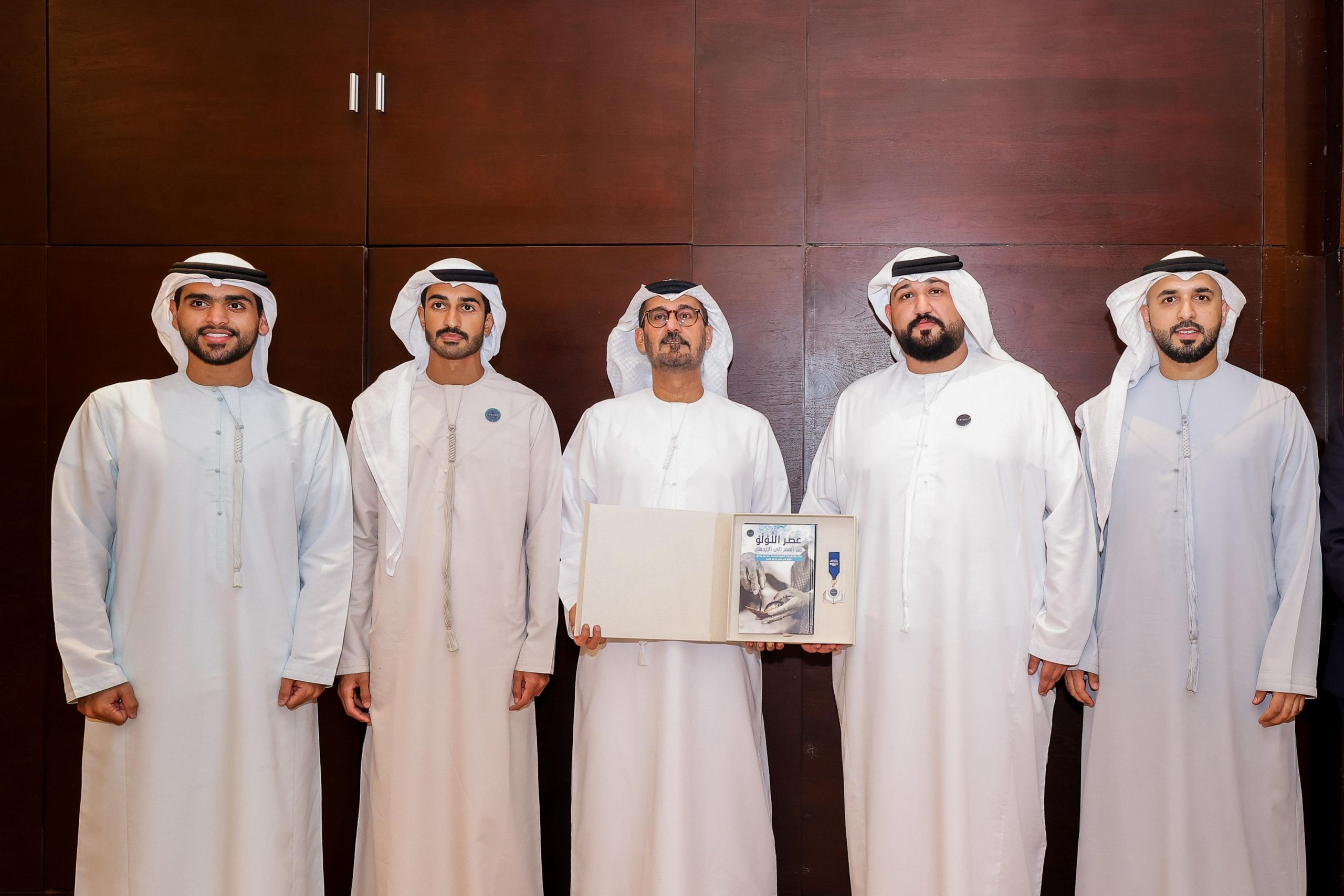
Balancing Risk and Opportunities
Al Dhaheri stressed that AI risks diminishing the human element in cultural production, as culture is not merely information or organized texts, but rather an expression of feelings, experiences, values, and identity. When generated automatically, content lacks spirit and does not reflect the human creative imprint. He added that, despite these challenges, artificial intelligence still presents significant opportunities for humanity—if it is used consciously and responsibly. These opportunities span several fields, including book publishing, content production, translation, language teaching, heritage preservation, documentation, and digitization.
He stated that artificial intelligence is a powerful tool, but cannot replace humans because it lacks feelings and values and does not express identity as humans do. He emphasized the need to preserve culture’s humanity, expand discussions and dialogues to build everyday awareness, and formulate a cultural future that balances technological advancement with preserving authenticity and identity.
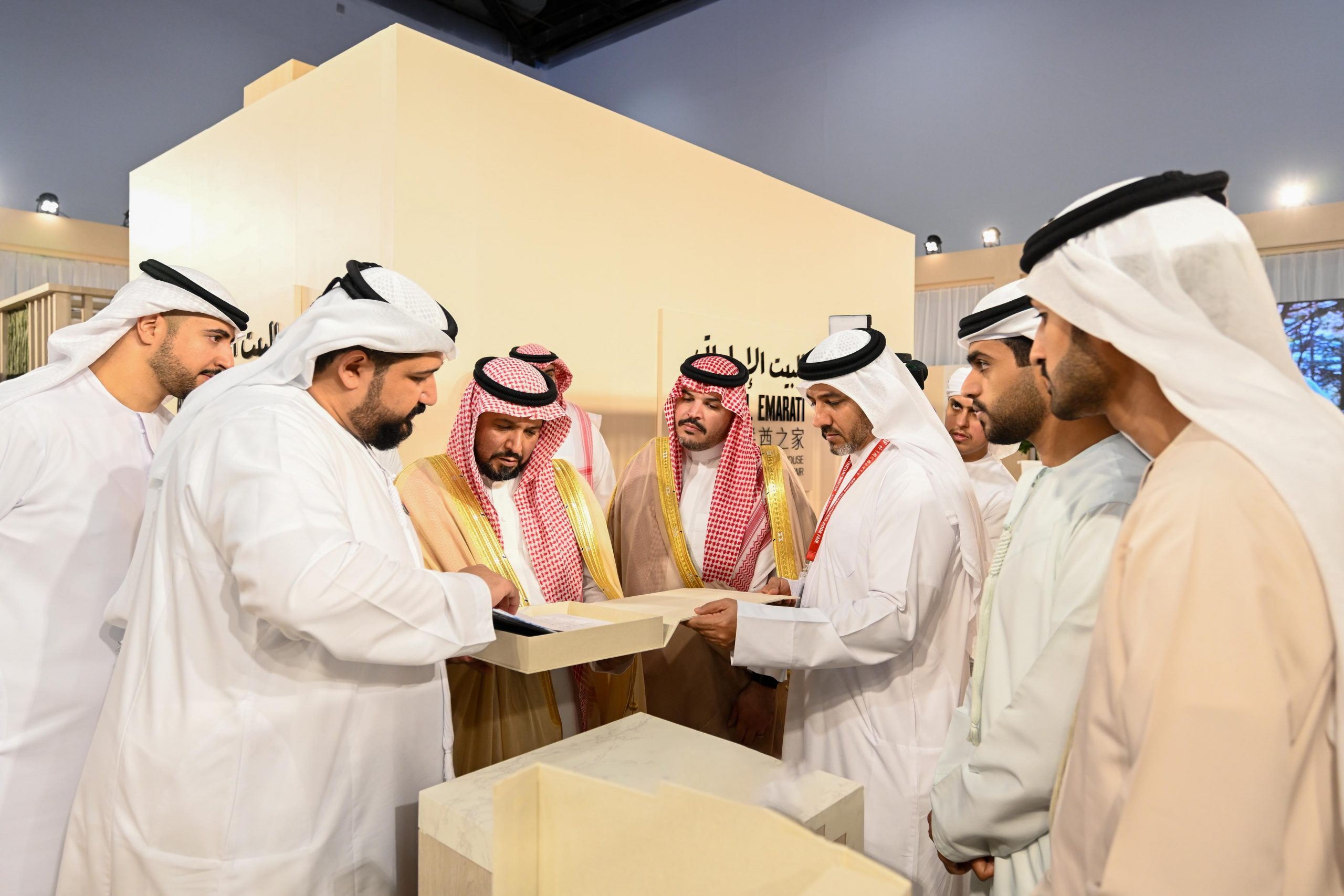
Abilities and Challenges
Zhang Xiaoyan, Vice President of the Center for International Cooperation at the CCID Institute, affiliated with the Ministry of Industry and Information Technology, believes that artificial intelligence technologies have demonstrated superhuman performance in many standardized tests, especially in the areas of image classification, visual representation, and English language understanding. However, challenges remain in more complex tasks, including competition-level mathematical reasoning, visual reasoning based on common sense, and complex planning.
She explained that while AI enhances cultural exchange between civilizations, it is essential to distinguish between different usage scenarios. In non-specialized contexts, it can improve communication efficiency, reduce labor demands, and shorten communication time. However, ensuring data accuracy remains essential in specialized scenarios when applying artificial intelligence to avoid misinterpretation. She added that data quality, human expertise, and deepfakes pose significant challenges to the development of artificial intelligence.

Spreading Culture and Knowledge
TRENDS pavilion at the Beijing International Book Fair attracted diplomats, academics, researchers, and thinkers who appreciated the Centre’s publications, qualitative research, and its role in promoting a culture of scientific inquiry and advancing knowledge. Notable attendees included:
H.E. Hussain Ibrahim Mohamed Al Hammadi, UAE Ambassador to China; H.E. Khaled Mohammed Jidid Al Shehhi, Deputy Head of the UAE Mission to China; Dr. Abdulmohsen Al-Okaily, Secretary-General of the Prince Mohammed bin Salman Award for Cultural Cooperation between Saudi Arabia and China; H.E. Ali Al-Othman, Deputy Ambassador of Saudi Arabia to China; and Dr. Abdullatif Al-Wasel, CEO of the Literature, Publishing and Translation Commission.
